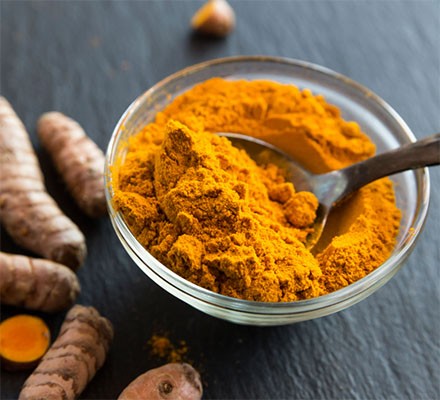Memory, Memory loss, Brain cells, Neurologic disorder, Cognitive impairment ,Alzheimer’s disease.
Root Cause of Disease
Alzheimer’s disease is thought to be caused by the abnormal build-up of proteins in and around brain cells. One of the proteins involved is called amyloid, deposits of which form plaques around brain cells. The other protein is called tau, deposits of which form tangles within brain cells. Alzheimer’s disease is a progressive brain disease. It is characterized by changes in the brain—including amyloid plaques and neurofibrillary, or tau, tangles—that result in loss of neurons and their connections. These and other changes affect a person’s ability to remember and think.
Symptoms
Generally, the symptoms of Alzheimer’s disease are divided into 3 main stages.
Early symptoms
In the early stages, the main symptom of Alzheimer’s disease is memory lapses. For example, someone with early Alzheimer’s disease may:
- Forget about recent conversations or events
- Misplace items
- Forget the names of places and objects
- Have trouble thinking of the right word
- Ask questions repetitively
Middle-stage symptoms
As Alzheimer’s disease develops, memory problems will get worse. Someone with the condition may find it increasingly difficult to remember the names of people they know and may struggle to recognize their family and friends.
Other symptoms may also develop, such as:
- Increasing confusion and disorientation – for example, getting lost, or wandering and not knowing what time of day it is.
- Obsessive, repetitive or impulsive behavior
- Delusions (believing things that are untrue) or feeling paranoid and suspicious about carers or family members.
- Problems with speech or language (aphasia)
- Disturbed sleep
Later symptoms
In the later stages of Alzheimer’s disease, the symptoms become increasingly severe and can be distressing for the person with the condition, as well as their careers, friends and family. A number of other symptoms may also develop as Alzheimer’s disease progresses, such as:
- Difficulty eating and swallowing (dysphagia)
- Difficulty changing position or moving around without assistance.
- Weight loss – sometimes severe.
- Unintentional passing of urine (urinary incontinence) or stools (bowel incontinence).
- Gradual loss of speech
Causes
The exact causes of Alzheimer’s disease aren’t fully understood. But at a basic level, brain proteins fail to function normally, which disrupts the work of brain cells (neurons) and triggers a series of toxic events. The causes probably include a combination of age-related changes in the brain, along with genetic, environmental, and lifestyle factors. Older age does not cause Alzheimer’s, but it is the most important known risk factor for the disease. The causes include:
- Age
- Family history and genetics
- Down syndrome
- Head trauma
- Air pollution
- Poor sleep patterns
Home remedies to treat Alzheimer
Remedy – 1: Almonds

Almonds consist of protein that helps repair brain cells, thus improving cognitive functions including memory. Zinc, in almonds, helps in reducing the effects of free radicals that are known to destroy body cells and cause disease. Almonds are rich in vitamin E that helps slow down the aging process of brain cells.
Procedure :
- Take 1 cup of water so that the almonds get fully soaked.
- Then, add the almonds in water.
- Cover the bowl and let it sit overnight, or 8-12 hours.
- Drain and rinse.
- Take off the peel and eat the almonds.
Product link : Almonds
Remedy – 2: Ginkgo Biloba

Ginkgo Biloba is perhaps the best known (and researched) botanical medicine used to treat conditions such as cerebral vascular insufficiency, memory loss, mood disturbances, cognitive disorders and depression, with many studies pointing to its efficiency in treating dementia. The herbs actions result in improved blood flow properties to the brain as well as promoting antioxidant activity. The world’s oldest living tree species has demonstrated its effectiveness in over 50 double blind trials and is often recommended for during the early stages of Alzheimer’s, when it is said to prevent the onset of the condition.
Product link: Ginkgo biloba
Remedy – 3: Turmeric

Turmeric is a significant ingredient that is an antioxidant and reduces the toxicity level of the body to zero. This helps in the reduction of pain in the body and also boosts the proper functioning of the brain hence significant in the treatment of the disease. The curcumin in turmeric may halt the buildup of destructive beta-amyloid in the brains of Alzheimer patients.
Remedy -4 : Coconut oil

Coconut oil is significantly used in the treatment of Alzheimer’s disease. Taking up to three tablespoons of coconut oil daily would work very essentially in the treatment of the disease.
Product link: Coconut oil
Remedy – 5: Green Vegetables

Green vegetables such as spinach and kales are rich sources of vitamin A and are necessary for the proper functioning of the brain and nervous system. This works very properly in the treatment of Alzheimer’s disease. Other rich sources of vitamin A such as squash, liver, eggs, bell peppers and whole milk should also be considered as part of the diet for quick curing of the disease.
Other remedies
Bottled water
Tap water and water from any other source contains ion like aluminum and other impurities that may interfere with the functioning of the nervous system. Bottled well or spring water should be considered for one with Alzheimer’s disease to enhance quick recovery and treatment. Water filters may also be used at home to ensure one is safe.
Alternative Treatments for Alzheimer’s Disease
- Coconut oil
- Omega-3
- Coenzyme Q10
- Coral calcium
- Acupuncture
- Aromatherapy
- Light therapy
Preventions
- Avoid smoking.
- Control vascular risk factors, including high blood pressure, high cholesterol and diabetes
- Eat a balanced diet — such as the Mediterranean diet — that’s rich in vegetables, fruits and lean protein, particularly protein sources containing omega-3 fatty acids
- Be physically and socially active, including engaging in aerobic exercise
- Maintain a healthy weight
- Take care of your mental health
- Use thinking (cognitive) skills, such as memory skills
- Avoid head injury
- Treat hearing loss
- Limit alcohol consumption




